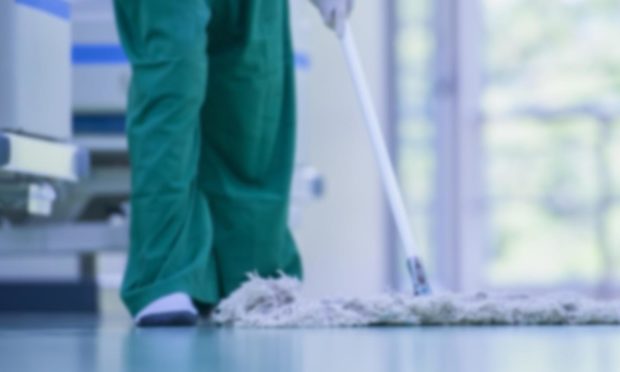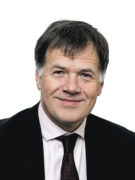At the end of the working day the waiting room is empty, the phones go quiet and our staff begin to head off home.
Most evenings I will still be in my room finishing tasks left over from the day’s clinical work. This includes signing repeat prescriptions, reading letters concerning my patients’ trips to hospital and checking the backlog of laboratory results from the previous day’s investigations.
I’m usually pretty tired. I know that issues I find difficult at the end of a long day will be much easier to unravel the next morning but I also know that the sheer quantity of paperwork will worry me in the middle of the night and swamp me the next morning. So I sit down with a cup of tea and deal with what I can, as efficiently and carefully as possible, given the late hour and my growing fatigue.
But I’m never alone. A new team has arrived in the building. I can hear the three cleaners chatting in the waiting room as they sort out their PPE, equipment trolleys and vacuum cleaners. Their work has always been essential to the safe running of the health centre but with the extra cleaning workload due to the pandemic, we rely on them even more.
I work on, and so do they. I hear the hum of their machines, the faint sound of their muted conversations, the occasional scraping noise as chairs and tables are moved for cleaning.
Dingwall Health Centre has been carefully segregated so that we have a red corridor for Covid-19 patients. Visitors enter and leave via a separate door and all the staff on duty take extra precautions with their PPE, to keep themselves and other patients safe.
Obviously, we take great care to wipe down every surface thoroughly after each patient interaction as part of the routine of working in PPE, whether in the red corridor or not, but all of these rooms must still be cleaned from top to bottom at the end of the day. We hang a red sign on the door of each room that has contained a patient with Covid-19 symptoms, so that the cleaners are aware and can take extra precautions but I realise that their work may be putting them at risk. I wonder what their families think as they watch them head out to work.
I get up and head for the main office to retrieve some paperwork. It’s nice to stretch my legs and always lovely to say hello to the cleaners. Usually, we pick up on conversations left over from the night before. When my energy is low after a long day, theirs helps me to push through my final tasks. I apologise for the trail of muddy footprints leading from the back door to my desk. There is no denying they’re mine, and I have no excuse.
I suspect they know us all better than we think. Our rooms tell our stories. Mess, no mess, our equipment awry or lined up with surgical precision, plants, photographs – whatever gets us through the day, they take care of it for us in the evenings.
Every fourth Friday, I print out a copy of my Press & Journal column, punch holes in the sides and hand it to Shirley. She stores them in a file and calls herself my agent. I hope she knows how chuffed this makes me.
The traditional view of general practice is of the doctor seeing patients as individuals; the door closed on a one-to-one consultation. This is only part of the story. I am unable to do my job without my colleagues and the others who support us. This includes our practice managers, the staff who manage the phones and the complex administration of the practice, the nurses, physios, pharmacists, porters, and cleaners.
There is only one other member of staff who was here when I first arrived in 1991. Others have retired or moved on, but I am fortunate to have been surrounded by caring and capable people. It is only since the pandemic that they are recognised by the media as essential workers, the truth is they have always been critical to the safe and efficient patient care of the practice.
Returning to my desk, I get ready to leave. I check that the detritus from the day’s work is in the bin and that my desk is clear. I’m tired, but I feel well looked-after by these people, whose constancy and warmth mean the world to me. Tomorrow my room will be spotless and I will return with a clear head wondering why last night’s problems felt so insoluble, and we shall all start again.
Dr Miles Mack is a GP in the Highlands and former chairman of the Royal College of General Practitioners Scotland.

